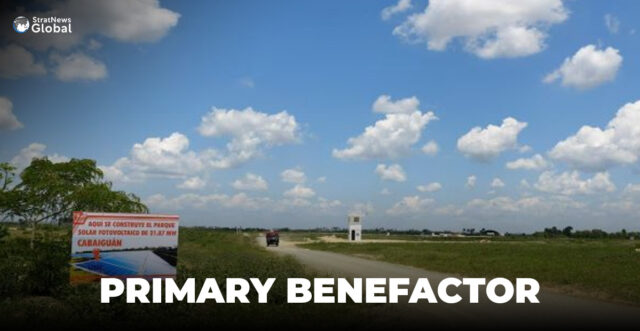Several hours inland from Havana along bumpy roads, the small town of Jatibonico in Cuba offers a glimpse into life from the late 19th-century, with streets filled with horse-drawn carriages and frequent power outages lasting day and night.
The town’s decrepit sugar mill – once the country’s largest – sits idle, lacking the parts, electricity, and fuel it needs to operate.
Two years ago a Russian company, Progress Agro, announced it would import machinery, fertilizer, and know-how to revitalize the mill, which once employed 2,000 people.
“When are the (Russians) coming? That’s all anybody talks about,” said Carlos Tirado Pino, 58, a mill maintenance worker among the few to retain his post.
Meanwhile, just outside town and out of sight, three bulldozers clear an abandoned cane field to prepare for the installation of a Chinese-financed solar park that will deliver 21 MW of electricity – one of 55 similarly sized such solar parks underwritten by China across Cuba this year.
Cuba is in desperate need of help. Shortages of food, fuel and medicine, grueling hours-long blackouts and plunging tourism and exports – combined with renewed U.S. sanctions under the second Trump administration – have devastated its economy.
Cuba joined China’s Belt and Road Initiative in 2018, and China has since invested in several strategic infrastructure projects on the island, including major projects in transportation, port infrastructure and telecoms, while Russia, mired in a war in Ukraine and leery of lending more money to crisis-racked Cuba, has faded as a historic partner.
“Russia’s promises have always been bigger than its performance,” said William LeoGrande, a professor of Latin American politics at American University. “If China is now stepping up its assistance in light of Cuba’s desperate conditions, that could prove to be a real lifeline.”
China, A Major Partner For Cuba
The solar park project positions China as a pivotal partner for Cuba at a time of nearly unprecedented crisis: the country’s national grid has collapsed four times in the past year alone, leaving millions in the dark and shuttering schools and businesses.
On February 21, Cuba inaugurated a solar park in Cotorro, outside the capital, in a ceremony that included China’s ambassador to Havana, Hua Xin and Cuban President Miguel Diaz-Canel, who lauded the project in a statement as a “collaboration from our sister Republic China.”
Since then, at least another eight have come online, according to grid operator UNE, churning out nearly 400 MW of sun-fueled energy together with existing parks – about a third of the mid-day deficit.
New Chinese-funded projects alone are expected to push that figure over 1,100 MW by the end of the year, according to official estimates, nearly covering the daytime shortfall and saving Cuba precious fuel to burn at night.
Officials at the February event announced China was participating in a project to modernize Cuba’s entire electrical grid, with 55 solar parks to be built in 2025, and another 37 by 2028, for a total of 2,000 MW – a massive undertaking that, when complete, would represent nearly two-thirds of present-day demand.
China’s Investments
The port of Mariel – Cuba’s main shipping center just west of Havana – saw traffic from China begin to tick up in August of 2024, according to shipping data and two foreign businessmen who declined to give their names for this story.
Ships arriving last year from Shanghai, Tianjin and other prominent Chinese ports carried solar panels, steel, tools and parts. The “kits” came complete with fuel for overland transport to assure the panels would make it to their destinations, the sources said.
Truck driver Noel Gonzalez, who on a recent morning delivered a load of gravel fill to the solar park site on the city’s outskirts, said he was both amazed and grateful for the Chinese diligence.
“The Chinese (workers) come and periodically check every liter of petroleum, every route we take,” Gonzalez said.
Fulton Armstrong, a former U.S. National Intelligence Officer for Latin America, called China’s investments a “big benefit” but warned they won’t be enough to overcome the Trump administration’s renewed sanctions on the island.
“Havana can’t bank on either Russia or China coming in with magic pills,” he said. “Only massive amounts of Chinese trade and assistance could pull the island through – and that just doesn’t seem plausible.”
China’s strategic investments in Cuba coincide with U.S. accusations that China is installing “spy bases” on the nearby Caribbean Island, though Cuba and China have denied the allegations.
Russian Roulette
Two years ago, as Cuba’s economy was still reeling from the COVID-19 pandemic and U.S. sanctions, Russia too was ready to lend a hand.
In May 2023, Russian Deputy Prime Minister Dmitry Chernyshenko arrived in Cuba for a ribbon-cutting ceremony that marked the reopening of the island’s largest steel mill, a project made possible thanks to $100 million in Russian financing, Cuban state-run media reported.
Chernyshenko called the mill’s reopening a “fine example of Russian-Cuban cooperation.”
The mill’s plant director, Reinier Guillén, promised output of steel bars from the facility would soar to 62,000 metric tons in 2024. But Russia’s investment did not translate into production.
Cuba’s statistics agency ONEI reported in April that the island had churned out just 4,200 metric tons of steel bars in 2024.
Promises Fall Short
On a recent weekday morning, the mill was quiet. A prominent smoke stack was idle, and no activity could be seen within the plant.
Esperanza Perez, a lifelong local resident who works at a small bakery in a ramshackle development of shanties and crudely-built homes, many without electricity or water, said the mill had sat idle for months.
“Talk is cheap. When (the mill) is running, we hear the noise, see the workers, but I haven’t seen any sign that it is operating,” said the 37-year-old Perez. “We’ve seen no benefits here.”
The day after the ribbon-cutting at the steel mill, Chernyshenko appeared with Diaz-Canel to sign at least eight agreements between Cuban state agencies and Russian state and private companies, according to a document.
The wide-ranging agreements included a deal to guarantee Cuba a supply of wheat for bread making, the opening of a well-stocked “Rusmarket” in Havana, the restoration of historic architecture in the capital’s historic district and cooperation in artificial intelligence.
There was even a bold plan to rebuild the crumbling Tarara residential beach community, whose coveted white sands and palm-fringed waterfront just minutes from Havana have been largely off-limits to foreign capital since 1959.
But on a recent visit, most of the homes at Tarara appeared abandoned or in disrepair, with only a small number near the beach refurbished and no sign of Russian investment.
Rusmarket Opening Delayed
Plans to open the Rusmarket – initially celebrated as a foot in the door for Russian vendors and products – have been delayed for two years. The nearby Yumuri department store, where Russian investors planned to open a bigger shop in June or July stocked with everything from Russian auto parts to canned trout and children’s toys, also appeared largely abandoned.
To be sure, some of Russia’s promised aid has come through. Russian state-backed companies have supplied cargos by sea of both wheat and oil to the island. And Russia, like China, has promoted tourism to the island, offering a bump in foreign visitors and much-needed foreign exchange.
In May, two years after the 2023 flurry of announcements, Russia’s Chernyshenko announced a plan to subsidize interest rates for businesses interested in investing as much as $1 billion on the island, calling Cuba a “reliable partner.”
“There’s still a lot of hard work to be done, we’ll advance little by little,” Chernyshenko told reporters in Moscow, adding that “it is impossible to achieve things immediately, as if by magic.”
(With inputs from Reuters)





